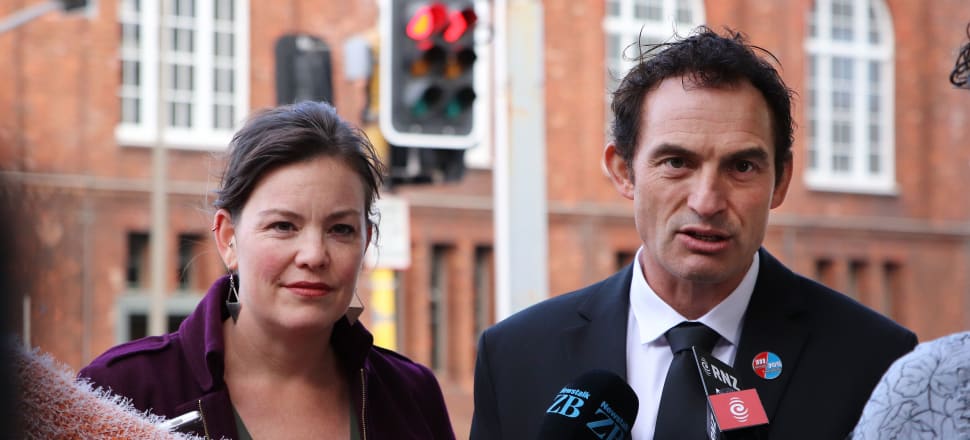
Politicians have committed to keeping roadside drug testing on the agenda after it was revealed the new regime wouldn't begin this weekend as promised
The grandson of a woman killed by a drugged driver is frustrated the Government hasn’t been able to get a testing regime up and running as promised.
It’s been almost five years since Hayden Mischefski's grandmother Ora Keene was one of seven killed in a crash near Waverley in 2018.
Since then he’s fronted media interviews, a Waka Kotahi anti drug-driving campaign, and lawmakers in select committee all in the hope of change.
That change was supposed to come in this Saturday, March 11. Roadside oral drug testing, similar to police alcohol breath tests, was promised when the Drug Driving Amendment Act was passed last year.
READ MORE: * Random roadside drug testing no longer going ahead * Ban drug ads to promote health
But, at the 11th hour, Ministry of Transport officials and the Associate Minister for Transport confirmed that would not be happening because the saliva kits they wanted to use do not exist.
“I just cannot believe that they have put together a policy whereby they can't even actually implement it. So we are going back and having a serious look at that." - Mark Mitchell.
The disconnect appears to hinge on tests that detect impairment levels. Tests exist that simply pick up the presence of drugs, but in order to issue infringements, a level – similar to alcohol breath testing technology – was required.
Experts warned the technology was not up to scratch when the law was passed, saying there was a risk false results would penalise safe drivers or not catch ones who were high.
In 2019, Police Minister Stuart Nash and Associate Transport Minister Julie Anne Genter confirmed consultation on a drug driver testing programme would begin, with Genter making it clear at the time a test for impairment did not exist.
"Unlike with alcohol testing, drug testing comes with some unique challenges, which is why we want expert and public input into the design process. For example, unlike alcohol breath tests, drug tests can only detect the presence of drugs or medication. They cannot test if a driver is impaired," the May 2019 press release said.
The Amendment Act was passed and officials were tasked to try to find one anyway.
However, Mischefski said something was better than nothing.
“They're probably overthinking it … If [drugged drivers] are still in their cars and they’re driving around, what's the chance that it could be someone else's child or grandmother who actually gets killed as a result?
“They fear it’ll criminalise the wrong people, and of course it's not a good thing, but they're quite fixed on the [impairment] debate."
He said roadside testing in Australia was operating in a way he thought would work in New Zealand.
In Australia, oral tests detect drugs during roadside screening, but a blood test is required for confirmation.
“I was under the impression it was all okay, and it turns out there's no equipment. But there is equipment [in Australia] so obviously they just need more time.
“It’s been five years … that's ages, that's plenty of time. I think really, they've just dragged the chain.”
“I would like to think this would become an election issue. [Roadside drug testing] was promised and if that’s been broken, it's a problem … there’s obviously some explaining to do.” - Hayden Mischefski
Police Minister Stuart Nash – who also had the job from 2017 to 2020 – was equally shocked testing would not start as promised.
“It was surprising to me to come back after two and a half years, take on the portfolio and go 'whoa … where did this go wrong?' Because, when I was Minister of Police, I had a different perception of where we were at.”
Despite this, he said the Government was not giving up on the idea of roadside testing.
“I've asked police for information on what other jurisdictions do, because obviously, we're not the only country in the world that wants to get people who are high on drugs off our roads.
“So we're going to use what everyone else around the world uses.”
That’s further frustration for Mischefski, who is left wondering why that was not just done to start with.
National’s police spokesperson Mark Mitchell described it as a “debacle” and promised to go back and see where things went wrong.
“I'm now going back and having a look at who they brought on to the advisory panels and whether they had the right people that are actually in the industry.
“I just cannot believe that they have put together a policy whereby they can't even actually implement it. So we are going back and having a serious look at that.
"I've had information that I'm following up on now that there were people that are in the industry, that offered to help, that put themselves forward to be part of the advisory panel and were told no because their expertise wasn't needed, that probably could have highlighted these issues that were happening.”
Mischefski hoped politicians would continue to get to the bottom of the issue, and look to a way forward.
“I would like to think this would become an election issue. [Roadside drug testing] was promised and if that’s been broken, it's a problem … there’s obviously some explaining to do.”







